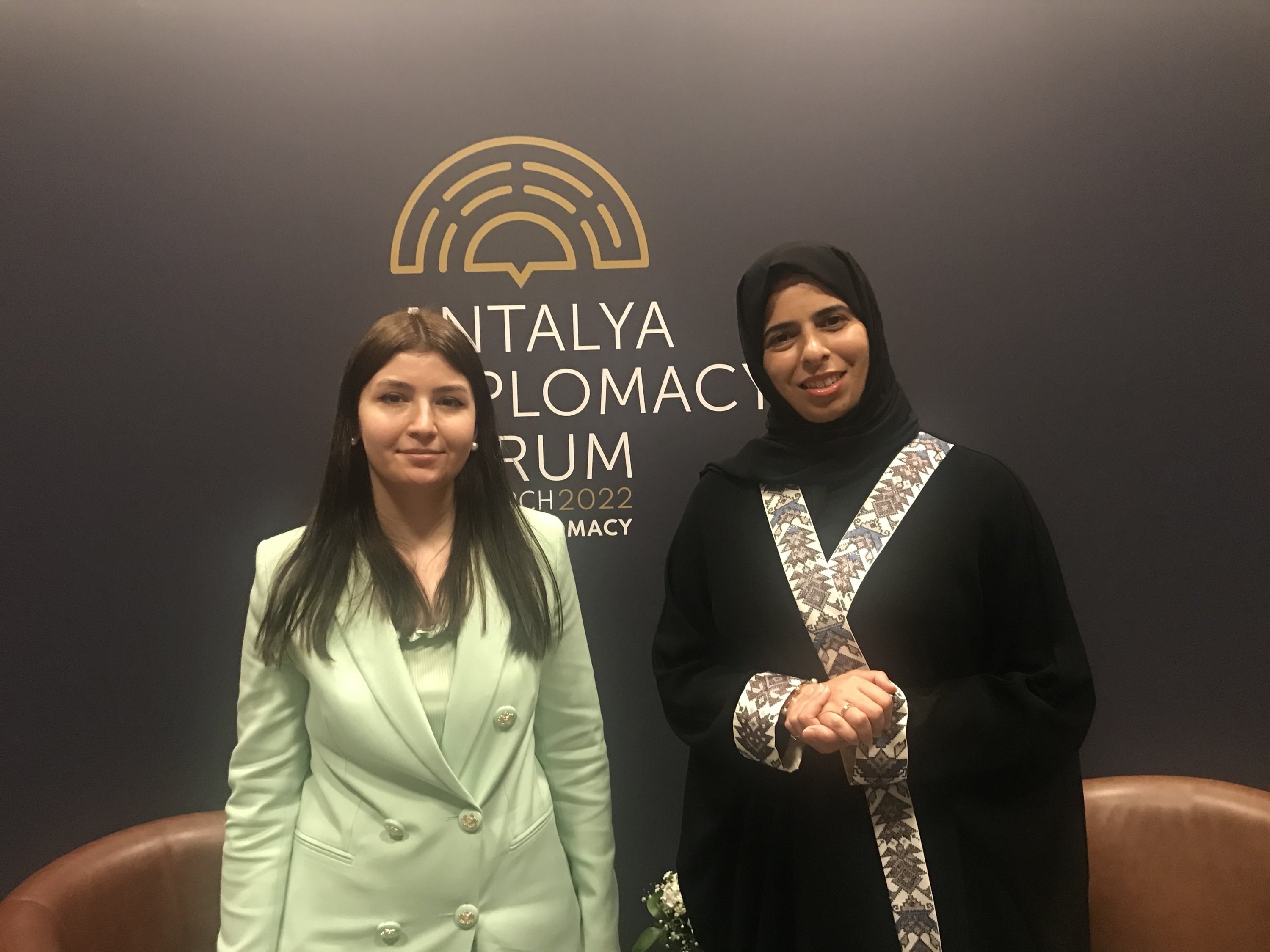© Turkuvaz Haberleşme ve Yayıncılık 2024
The relationship that Turkey and Qatar enjoy is a strategic relationship, Lolwah Rashid Al-Khater, assistant foreign minister of Qatar said, indicating the two countries’ cooperation on Kabul Hamid Karzai International Airport is also ongoing.
"The relationship between Qatar and Turkey is a strategic relationship for us, Qatar, and we think for Turkey as well. We have strengthened these relations through many agreements, economically speaking, militarily speaking, in terms of tourism, education," Al-Khater exclusively told Daily Sabah on the sidelines of the Antalya Diplomacy Forum.
"We have many areas of collaboration with Turkey, we have been basically collaborating in the region and mostly recently in Afghanistan," she highlighted, referring to rendering Hamid Karzai International Airport in the Afghan capital Kabul again operational.
"The Turkish role was an important role, specifically on the airport. We are trying to work out some sort of a joint project to help the Afghan people, to revamp the airport. This hopefully will serve for passengers, for cargo and also for humanitarian aid in the future," Al-Khater underlined.
Reiterating that in mid-August, after the American side and its Western allies left Afghanistan, the airport was in a very difficult situation and not operational, Al-Khater said, "A group from Qatar, both military and technical teams went there and within less than two weeks they put the airport back into operation."
Since then military and civilian aircraft have been able to go in and out to Afghanistan or to Kabul airport with no issues, she added.
"Yet, for the airport to have the capacity to have commercial flights back it will need more work. This is where the role of Turkey comes in. We have been having many discussions with our Turkish colleagues, we have a joint team together," Al-Khater emphasized, saying that the two countries’ delegations met in Kabul, Doha and in Istanbul to come to an agreement with the defacto government in Afghanistan.
She said negotiations are ongoing.
On the other side, similarly speaking to Daily Sabah, the Taliban said that an agreement with Turkey and Qatar is to be expected soon.
Khairullah Khairkhwa, the Taliban’s acting culture and information minister, said: "Turkey and Qatar and the Afghan government have been nearing an agreement, so hopefully in the near future it will be finalized. The priority and the preference is Turkey and Qatar."
Turkey has been working with Qatar to reopen the airport in the Afghan capital for international travel.
After the Taliban seized control of the country, Turkey offered technical and security assistance to operationalize Kabul's airport. Keeping the airport open after foreign forces handed over control is vital to keeping Afghanistan connected with the world and maintaining an uninterrupted supply of aid for distribution.

Within 10 days in August, the Taliban gained control of most of Afghanistan in parallel with the United States withdrawal from the country after 20 years of military presence. Shortly after the withdrawal of forces, technical teams from Turkey and Qatar started working on getting the airport back to operational standards.
Ankara and Doha enjoy strong relations, particularly since the 2017 blockade of the Gulf country by Saudi Arabia and others. The two countries have strengthened military and economic ties in recent years.
In the last two decades, relations between Turkey and Qatar have witnessed rapid development in various fields. In a volatile region like the Middle East, the ability of the two countries to maintain strong relations and a convergence of views on many regional and international matters represent a rare "distinguished experience" that has provided a strong basis for increased interdependence and cooperation between the two allies.
While relations between Turkey and Qatar officially began in 1979 with the opening of the two countries' embassies in Doha and Ankara, they have witnessed a major boost recently.
Also, Turkey and Qatar have been cooperating on numerous regional issues, including the Libyan crisis and Afghanistan.
